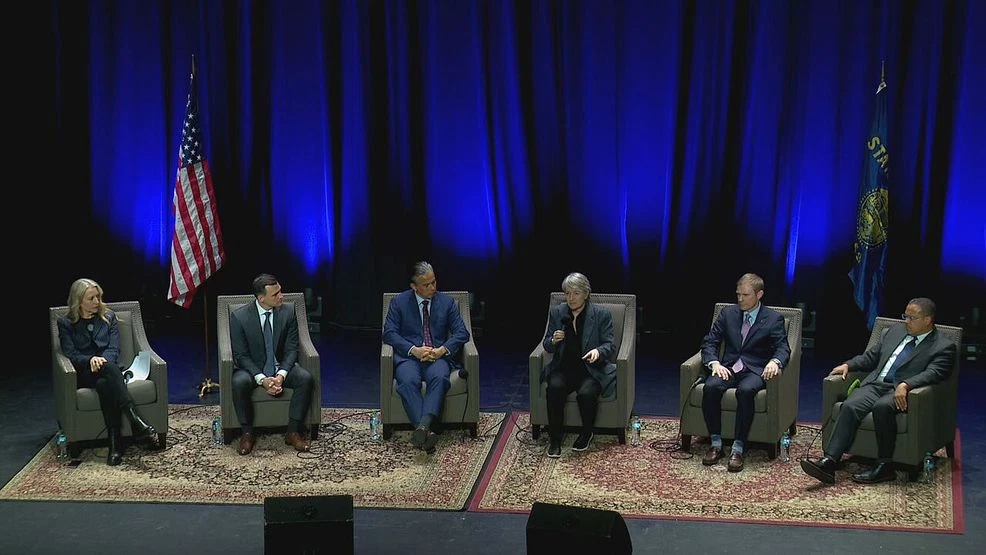This was funny… straight up hilarious…
I was watching this video clip on Instagram—once I describe it, many of you will know exactly what I mean.
This was either during halftime or a commercial break at an Atlanta Hawks game. Their mascot was dancing along the sidelines, doing silly things—like most mascots do—as part of the entertainment while the teams paused play. But this one was a bit more interesting and funny.
The mascot had an instrument used to determine whether a diamond is real or cubic zirconium. You can imagine, especially in Atlanta and particularly in the floor seats, which cost more than $15,000 each, that the people with money and fame usually fill these seats, also known as Ballers, if I may use the urban lexicon for a moment. The mascot scans the sidelines, looking at the rings women wear, especially if they are with their man (husband or fiancé). If the woman with the ring is willing, the mascot will use this diamond-verifying instrument to check it. Hopefully, the guy has bought an authentic diamond and avoided embarrassment.
In the clip I saw, it was NOT a real diamond! At that moment, I could hear the iconic words of Scooby Doo—”Rut-Row!”
The woman was embarrassed, threw the ring in his face, and walked out of the arena.
The Bigger Question: What Do You REALLY Have?
Does it matter if the diamond is real or not? Isn’t it what it represents that matters? And why would a woman end the relationship on the spot simply because her ring isn’t a diamond?
Here’s another thought—did he deceive her into believing it was real? And with her storming out, can we assume that if he lied about the ring, there might be other things he lied about?
This is the core point: You don’t really understand what you have in a partner until you’ve experienced something together. Everything else is just a dress rehearsal.
The Research: Why Hard Times Reveal the Real Person
Dr. Thema Bryant, president of the American Psychological Association and a Black psychologist who focuses on relationships in the African American community, has observed that shared adversity reveals the true nature of our bonds. In good times, people put on their best face. But when life gets disrupted—like with job loss, illness, or family conflict—that’s when we see the strength of love and the depth of commitment.
Similarly, Dr. Niambi Carter, a researcher at Howard University who has studied decision-making among Black couples, discovered that many couples base their idea of marriage on the “highlight reel”—holidays, vacations, special moments—without ever testing the strength of the foundation. She cautions that this can result in “lifelong commitments built on seasonal stability,” which may fall apart when real life demands more.
Why Black Couples Face a Unique Layer
Sociologist Dr. Shirley Hill, in her work on Black family structures, highlights that systemic pressures—like economic inequality, racial tension, and health disparities—mean that challenges will arise whether couples expect them or not. However, because some relationships develop during calmer times, the first storm often feels like a betrayal instead of an unavoidable part of a partnership.
Therapist Dr. Spirit (licensed therapist, nationally known media personality) has said:
Your partner’s true character reveals itself in moments of discomfort, how they prioritize you, and how they handle disappointment. Those moments are more meaningful than the proposal, the wedding, or the Instagram captions.
How to Assess Without Creating Drama
Some people try to “test” their partner with artificial challenges, but that can be manipulative and unhelpful. Instead, here are healthier, straightforward ways to evaluate the worth of someone you’re truly dating.
- Observe Their Consistency – Watch if their words and actions align over time, not just when it’s convenient.
- Pay Attention to Small Disappointments – Watch how they react when plans change, the restaurant messes up their order, or traffic makes them late. Minor frustrations reveal emotional habits.
- See Them in Service – Volunteer together or watch how they treat service workers; kindness under no obligation is telling.
- Discuss Future Stressors – Ask how they’ve handled challenges in the past. Their stories can reveal patterns in resilience or avoidance.
- Note Emotional Availability – Are they able to sit with you when you’re upset, even if they can’t “fix” the problem? Emotional presence is a strong predictor of relationship stability.
Final Thought
Since we’ve been talking about diamonds, what better way to conclude this article than with a diamond analogy: A flawless diamond is stunning, but it’s the unseen pressure it endured to become one that makes it valuable. Similarly, a partner’s worth isn’t determined during the sunny seasons but in how they navigate the storms with you.
Or as Dr. Thema Bryant often reminds couples: “Don’t just ask if they love you—ask if they can labor with you.”







